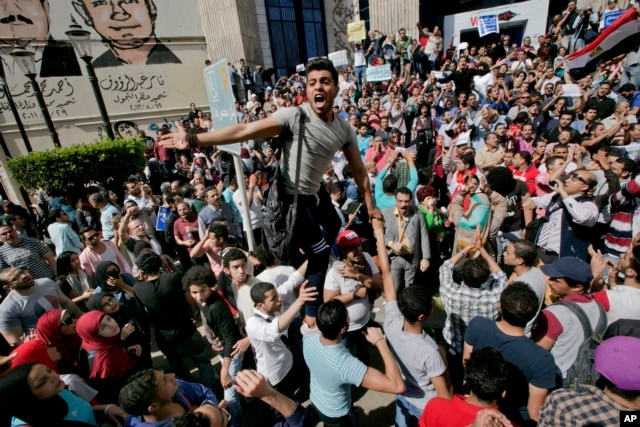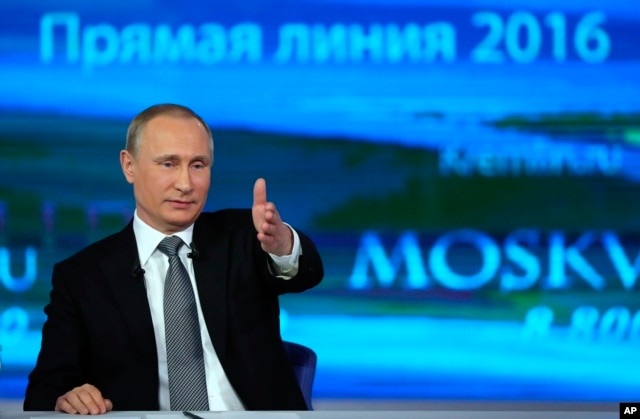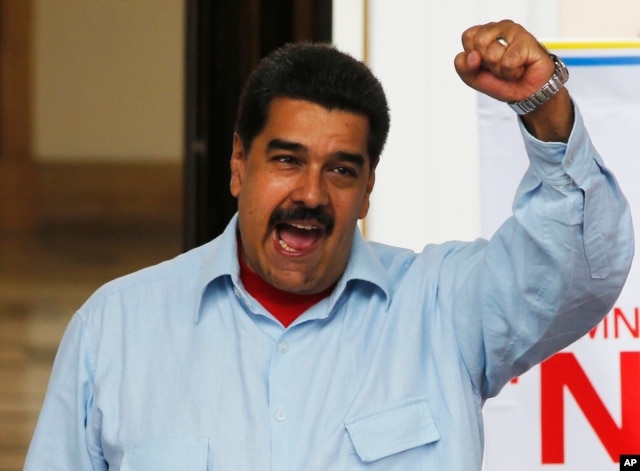Arrests, threats on the rise in Egypt
Journalists across Eastern and Southern Africa faced rising political pressure last year, according to Freedom House. Although the 2010 Constitution in Kenya prohibits government interference in media, reports of intimidation and harassment are increasing in number. A media council set up by the government in 2013 has the power to impose stiff fines on reporters or withdraw press accreditation.
“Oh yes, we've faced a number of threats over the years,” said John Allan-Namu, an investigative journalist who left Kenya TV in late 2015 to co-found the Africa Uncensored news site. “We've faced threats from the police, from various quarters within the government -- fairly high in the rank of government.”
Allan-Namu says journalists have also been threatened by private businessmen and entrepreneurs – “basically anyone who feels aggrieved by our stories.”
Egyptian media has experienced an acute decline in freedom under President Abdel Fattah al-Sisi, who has personally met with journalists and writers at least three times since coming to power in a clear effort to set government red lines.
Last year, Egypt imprisoned a record 23 journalists, according to the CPJ, second only to China as the worst global jailer of journalists. Security forces arrested dozens of journalists attempting to cover recent protests against the transfer of two Red Sea islands to Saudi Arabia and, on Sunday, stormed the press syndicate’s Cairo headquarters, arresting two journalists who had been participating in a sit-in to express solidarity with their jailed colleagues.
The state-controlled news agency MENA reported that arrest warrants had earlier been issued against the two journalists, who are accused of posting false news on Facebook to incite the April 25 protests.
FILE
- Egyptians shout slogans against Egyptian President Abdel-Fattah
el-Sissi during a protest against the decision to hand over control of
two strategic Red Sea islands to Saudi Arabia, in Cairo, Egypt, April
15, 2016.
“President Abdul Fattah el-Sisi he mainly sees the media’s role is to
support the regime and act like a propaganda machine for the regime,”
said Khaled Dawoud, assistant Editor-in-Chief of Al-Ahram
weekly and spokesman for the liberal al-Dostour party. “And we refuse to
play this role. Our rule is provide objective and credible coverage of
events that are taking place in Egypt.”Egypt is now turning its attention to social media. This month, the speaker of Egypt’s parliament called for new laws that would allow authorities to prosecute Facebook users posting material “dangerous to…national security.”
In September 2015, Sisi told CNN that Egyptians enjoy unprecedented freedom of expression.
“And throughout the time I have been in office, nothing will happen to the people of the press or the people of the media,” he said.
Taking on cyberspace in China
The internet is posing challenges for other authoritarian governments seeking to curb free speech. Last year, for example, China passed a national security law and drafted a cyber security law which open the door for widespread crackdowns on free speech online.
“Probably the biggest setback in terms of freedom of the press in the past three years has been the increased control over the internet in China. China has always controlled the internet in China,” said William Nee, a China researcher at Amnesty. “It set up the great firewall, probably the greatest censorship apparatus there is to control the internet.”
At the opening of a major internet conference in Beijing in December 2015, President Xi Jinping advocated respecting the rights of internet users “to exchange ideas and express their minds;” this, as prominent rights lawyer Pu Zhiqiang was facing charges of “inciting ethnic hatred” and “picking quarrels and provoking trouble” for a series of messages he posted on the popular microblogging site Weibo.
“When Xi Jinping rose to power in 2013, he went after the big celebrities, the big Vs – verified users, the big Vs – verified users in Weibo and people who had millions of followers,” said Nee. “Weibo, despite the censorship, was a relatively vibrant place where people could talk about public affairs, talk about news.”
But the crackdown has not only tamed this vibrant media space, said Nee, but had a carry-over, sobering impact on traditional media outlets.
Similar campaigns are underway in Russia, where independent media are facing growing pressure under Vladimir Putin, especially during the current economic crisis.
FILE
- Russian President Vladimir Putin gestures as he answers a question
during his annual call-in show in Moscow, April 14, 2016.
“Before 2011 they basically ignored what was going on the internet,
on social media,” said Ilya Klishin, digital media chief at the
independent Dozhd TV, also known as TV Rain. “They thought if you
control the…major TV stations, then you’re good. Then you control the
public opinion.”But the power of the internet became clear after 2011-2012 street protests, largely organized on social media, and Klishin says efforts to control its influence have gained added urgency ahead of parliamentary elections slated for September.
“A witchhunt is being waged against independent media, which are increasingly branded as a ‘fifth column’ seeking to destabilize the country,’” was the way Reporters Without Borders described the current media climate in its April on press freedom.
Refusing to sell newsprint in Venezuela
In the Americas, press freedoms tend to be higher, with some notable exceptions.
In an effort to silence its media critics, the government of Venezuela has gone so far as to refuse to sell newsprint, forcing dozens of newspapers to suspend printing or shut down altogether.
FILE
- Venezuela's President Nicolas Maduro speaks during a demonstration,
at Miraflores Presidential Palace in Caracas, April 7, 2016.
As a result, many journalists have turned to the internet – among
them, Alberto Federico Ravell, former CEO and co-founder of the news
channel, Globovisión. After leaving the network in 2010 – allegedly
under government pressure – he co-founded the web news portal La
Patilla. Highly critical of the government of President Nicolas Maduro,
La Patilla ranks among the top most visited sites in Venezuela."They see us as the media of the CIA or the State Department,” Ravell. “This government really maintains a relentless persecution against the media and against the directors and editors of newspapers.”
The U.S. scores high among the major media watchdog organizations, but watchdog groups note some concerns:
Freedom House notes that U.S. media have been caught up in the 2016 presidential election campaign. “The leading Republican candidate, Donald Trump, made criticism of individual journalists and outlets a major focus of his appeal and used outrageous social-media comments to attract and divert traditional media coverage,” Freedom House said in its annual report.
RSF ranks the U.S. 41st out of 180 in its most recent index, citing what it called a “war on whistleblowers” in the U.S. and expressed concern over the arrests of journalists during #Blacklivesmatter protests in Baltimore and Minneapolis.
The CPJ has for its part expressed concern over the Pentagon’s first Law of War Manual, which notes that some journalists in conflict may be “unprivileged belligerents,” using journalism as a cover for other activity. This, it says, could open the door for U.S. military to detain journalists without charge, evidence or trial.




No comments:
Post a Comment